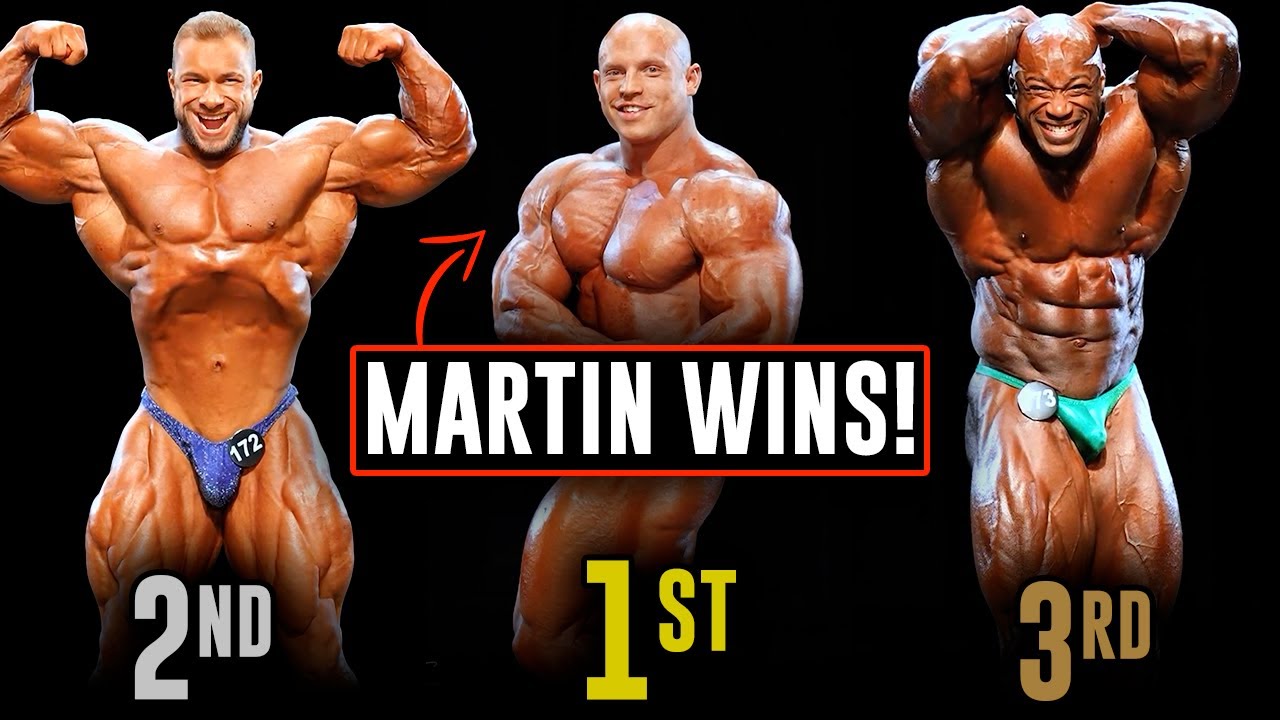[ad_1]

by Christian Duque
First and foremost kudos to Fouad on putting such a great bodybuilding show on. This article isn’t about who won or how big of a battle there was on stage. We could definitely tackle those topics for a future article. The basis of this particular piece is to discuss the actual contest and how much of an effort Fouad put into it to ensure its likely success. When you stop to think about a production of this caliber you look at a variety of factors including how much time was put into the preparation, who comprised the team, and how experienced the promoter was.
Oftentimes promoters can get in over their head without knowing any better. Putting on a bodybuilding show requires understanding the community where the contest is to take place and having deep roots therein. It’s very difficult to simply spin the globe and put together an event wherever your finger lands. We have seen promoters that believe that any problem can be resolved simply by throwing money at it. That’s not going to cut it in bodybuilding. Every city is different and offers its own challenges. Moreover, good promoters must take the time to find venues that will be ideal for their production. You don’t want any that’s too big if you’re not going to have enough of an audience to justify it. The last thing you want is to have a show that looks like it was a total flop. It would be better to have a smaller venue with not enough seats than a larger house with a lot of empty ones. But this again applies to novice promoters – not to Fouad.
The word promoter is one that gets thrown around a lot in the fitness industry. Anybody that has put together even a single rinky dink show can call themselves a promoter. It’s a very vague term that really runs the gamut. Some promoters own supplement stores or private businesses and have decided they want to take the plunge into the world of muscle and fitness contests. Others are former competitors that are looking to turn a new page and find their niche in another part of the industry. And some promoters have been doing it since the beginning of time. These dinosaurs are largely going extinct as they have been unable to keep up with the times.
Putting on a bodybuilding show 30 or 40 years ago was completely different than today. Back then it was all about print and investing big money into having big name guest posers. In today’s world of promoting very few shows have big name guest posers and print is absolutely dead. The very last publication to try to defy the norm was Muscular Development and they are long gone. Today it’s all about social media, big name influencers, and plenty of word of mouth. If a contest is good, the fans will spread the word like wildfire. Sometimes even new shows that are marketed correctly can take off. Some promoters are so good at their craft that they don’t even have to shell out a penny for marketing. They know exactly what to say and when. and this would be a perfect segue to talk about Fouad and the expansive reach that he has been able to develop over the course of a few years. Or at least one would think.
Fouad is the host Bro Chat, the most popular podcast in the sport of bodybuilding. It commands a massive audience and it includes a who’s who of guest commentators and guest co-hosts. Everybody wants to be associated with the program because of the fact that it has such a huge viewership and listenership. Fouad is also a former professional athlete with an accomplished resume that includes key wins and top honors. Moreover, Fouad is also the owner of a successful supplement company with various skews of great products used by influencers and elite level competitors. When you look at Fouad on paper you are left with the impression that he has done absolutely everything correctly and he is by far one of the most marketable success stories in the world of muscle. In addition to the aforementioned, Fouad is also extremely well-liked by the federations. To be successful in business and to have the support of the powers that be is no simple feat. He has been able to grow in such a way as to not step on the important people’s toes. He has also been able to be extremely opinionated without feeling the wrath of those who normally have their finger on the industry’s pulse.
A lot of times having a big voice can bring a lot of problems. That’s the kind of blowback you don’t want. It’s the kind of reaction that can cost you business and sponsored athletes. It can just about bury you. Fouad is somebody that can go to Pittsburgh and get the star treatment but also is someone who is trusted. He understands how this whole thing works and even though sometimes it might be more fun to be no holds barred type, those that are mindful of the limitations that are present, are going to be around for the long haul.
It’s perfectly acceptable to be a rebel and be very marketable, but you have to know who and what you’re going against. I will tell you Fouad will not make the mistake of someone like Lee priest. You look at Lee and you’re left wondering what would have happened with him had he just kept his mouth shut. He was a top six Olympian and arguably the greatest bodybuilder of his height and weight. He could have been as big as Flex Lewis – or bigger. Once again it’s all about choosing your battles.
So here we are talking about the Detroit Pro. After everything that has been said you would imagine that because it is Fouad’s show that it would be a huge success like anything else he would do. I mean he has seen nothing but growth and return on investment with regards to his podcast, his supplement line, and pretty much everything else he touches. So why was his contest essentially a flop when it came to the one and only pro division it offered?
That’s right folks, the only pro division that he offered at the Detroit Pro was men’s open bodybuilding. No other professional division was offered. He put bodybuilding center stage and made the rest of his show around it. Now, he was smart enough to include every division at the amateur level and this will thankfully save his ass from financial ruin, but he made sure to only offer men’s open bodybuilding at the professional level because he wanted to give back to the division that made him who he is. And how did that work out for him?
The Detroit Pro is a contest that could have drawn some of the biggest names in bodybuilding. It could have drawn guys that were hungry for an Olympia qualification and guys that competed at the Arnold shows around the world. Fouad made sure to offer a nice amount of prize money. first place was 25,000 and the winner would have tremendous media opportunities as a result of winning the contest put on by the host of the biggest podcast in the sport. Some guys that could have done the show and/or were speculated to be doing the show included the likes of Tonio Burton, James Hollingshead, and Akim Williams, just to name a few. Of those guys, none of them signed on to compete.
In reality the contest only drew six competitors total. Three of those competitors were complete no names. No disrespect to them or to their athletic achievements, but when you have three professional athletes out of six that no one has ever heard of that is not exactly a very promising state of affairs. And the three guys people have heard of are not guys that you would see in the top 10 either at the Olympia or the Arnold Classic. So basically Fouad put on a competition with a nice prize that only drew out half a dozen guys of ranging quality.
What can be said about that? Did bodybuilding betray Fouad? Is bodybuilding a dead division? I will tell you that if he wanted to line his pockets with profits he would have offered bikini, wellness, men’s physique, and classic physique. If he would have done that at the pro level he would have been able to write his own ticket. He would have made money hand over fist. But just offering pro men’s open bodybuilding was essentially akin to shooting himself in the foot. It also probably makes other promoters think twice about putting all their eggs in one basket. We have often heard that bodybuilding is the flagship division at the Olympia and the Arnold Classic, but the Detroit Pro might have proved positive that that is nothing more than lip service from the two biggest bodybuilding shows in the world. It may also raise serious questions as to why bodybuilding continues to make the most money when in reality these figures may be highly inflated. We have often heard that classic physique is way bigger than bodybuilding.
To support this contention I point to the Natural Vitamins Epic Block party in Ozone Park New York that I attended a couple of years ago. Even though you had guys like Nick Walker, Brandon Curry, and other big name bodybuilders, everyone there was there for Chris Bumstead. There were lines that exceeded five blocks and most of the people waiting patiently were there for the classic physique Mr Olympia and no one else. So once again I beg the question, is bodybuilding really the flagship division? Is it really paying the bills? And should Fouad do another Detroit Pro where he only offers professional men’s open bodybuilding?
Even though his heart might be into it and even though he might be doing right by his original division, it really doesn’t make very much business sense. He has essentially taken a hit by trying to be good to a division that maybe is only dominant in name only. Maybe it’s the location. Maybe Detroit is cursed? Or maybe it just goes back to the fact that bodybuilding is dying out and other newer divisions are more marketable and are more in demand.
I can tell you that I’m very familiar with Michigan having gone to law school there and lived there for 8 years. I have lived in Lansing, the Novi area, and attend classes in Grand Rapids, as well. I know Michigan and I know that it’s a hotbed for bodybuilding. Therefore I don’t think that Fouad’s decision to use Detroit was not well thought out. He did absolutely everything correctly but in the end all he can say that he got was six pro guys. Once again, thank goodness he had the common sense to offer all the divisions at the amateur level. Could you imagine if this had just been a professional men’s only bodybuilding show? He would have lost his shirt, his pants, and his shoes. What does he do now? Will he try to do this show again next year?
For all the money and all the time and effort he invested into this show, it would almost seem like doing it again next year would be a colossal waste of time. He doesn’t need the money, but he is an excellent businessman. Even if you don’t need the money, it makes poor business sense to continue investing into a sinking ship. I can’t imagine what will change in 2025, but my guess is the Detroit Pro is a one and done type event.
What say you?
[ad_2]
Source link


